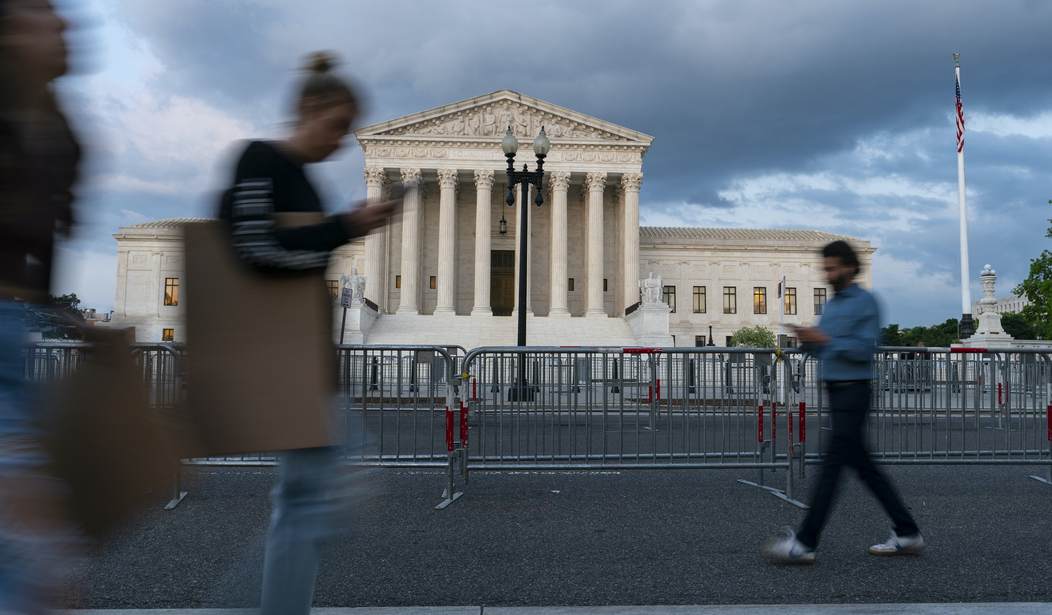A lawsuit over a fake sex trafficking ring could be headed to the Supreme Court after one of the individuals caught up in the scheme seeks legal action against a police officer.
The case centers on a police officer with the St. Paul Police Department in Minnesota, and a woman named Hamdi Mohamud, who served two years in jail at the age of 16 over false charges.
Officer Heather Weyker was responsible for the 2011 arrest and incarceration of Hamdi Mohamud, a Somalian refugee who was only 16 years old at the time.
Weyker had begun working with a federal sex trafficking task force in November 2008. She was investigating a different Somali-American teenager who was known as a frequent runaway and had previously spent time in juvenile detention.
The officer began covertly meeting with the teen at her school. She compiled 30 recorded interviews and thousands of pages of notes. At first, the teen, known as “Jane Doe 2” in court documents, was only an informant. This soon changed when Weyker deceptively identified her as the center of a widespread interstate child sex trafficking operation operated by Somali gang members.
In 2011 Heather Weyker, a St. Paul cop deputized as a federal marshal, framed @IJ client Hamdi Mohamud. After 2 years in prison, Mohamud sued Weyker for violating the Constitution under state and federal color. Today, the 8th Cir. holds that Weyker can be sued under neither.
— Patrick Jaicomo (@pjaicomo) July 23, 2025
1/ pic.twitter.com/bR9QKGwf7P
Weyker began writing reports that seemed to contradict her handwritten notes. Still, the FBI and other law enforcement agencies went with her conclusions and announced a series of indictments. Jane Doe 2 took a trip to Nashville, Tennessee, in April 2009 with five young Somali men. Her parents reported her missing. When law enforcement caught up with her, she stated that she had not been abducted and signed a written statement to that effect.
Recommended
But after she was allowed to contact Weyker, her story magically changed. She said she had been trafficked, which triggered a federal investigation and arrests. The officer allegedly lied repeatedly to investigators, judges, and even grand juries. She fabricated evidence, submitted a forged birth certificate to show that Jane Doe 2 was underage (she wasn’t). The officer also concealed exculpatory evidence from the defense.
This is where Mohamud enters the story. Muna Abdulkadir, a close associate of Jane Doe 2 and witness to the supposed trafficking operation, assaulted her and two other teenage girls with a knife in 2011. Shortly after calling the police to report the attack, Weyker had her and her friends arrested. This happened after Abdulkadir called the officer to tell her what happened, indicating that the officer was trying to protect her.
Mohamud spent nearly two years in jail without a trial until she was finally released after her case was dismissed.
The sex trafficking investigation fell apart after only three of the 30 suspects were acquitted or had their charges dismissed. There were only three actual convictions, which were overturned in 2016 by the Sixth Circuit Court of Appeals. The court found that the government “proved, at best, multiple conspiracies,” but not one large ring as law enforcement had claimed. The judges further expressed “acute concerns” that the entire case was “fictitious.”
Mohamud later filed a lawsuit against Weyker for false arrest and unlawful detention. She alleges the officer violated her Fourth Amendment rights by fabricating evidence and lying to fellow officers.
Weyker is still employed as a police officer with the St. Paul Police Department. The Eighth Circuit Court of Appeals rejected the lower court’s ruling stripping Weyker of qualified immunity. The court acknowledged that Weyker’s conduct was corrupt, but held that she is still entitled to qualified immunity because she was working as a temporary federal officer at the time.
The court decided that since Weyker was acting “under color of federal law,” she cannot be held liable for her conduct due to limitations in the Biven doctrine, which comes from a 1971 Supreme Court ruling deciding when federal officers can be sued.
Under the doctrine, federal officers can only be sued if they engage in the exact context that the Biven case covered. The court held that Mohamud’s case represents a “new context” even though it involved a clear Fourth Amendment violation.
This is because Weyker did not personally arrest Mohamud. Instead, she deceived another officer into making the arrest. Also, she did not physically enter Mohamud’s home, but tricked the other officer into doing so.
But Mohamud remains undeterred. Mohamud, now represented by the Institute for Justice, filed a writ of certiorari with the Supreme Court. The attorneys urge the court to resolve the dispute over whether individuals can sue federal officers for clear violations of the Constitution.
This would be a wonderful opportunity for the Supreme Court to protect liberty by ensuring that federal officers will face accountability when they abuse their authority. Without consequences, there is no reason for corrupt officials to refrain from unfairly targeting civilians. If it’s illegal for everyday people to engage in a particular behavior, the same should hold true for government officers.
Editor’s Note: Do you enjoy [Insert Site’s] conservative reporting that takes on the radical left and woke media? Support our work so that we can continue to bring you the truth.
Join Townhall's VIP program and use the promo code FIGHT to get 60% off your VIP membership!
























Join the conversation as a VIP Member